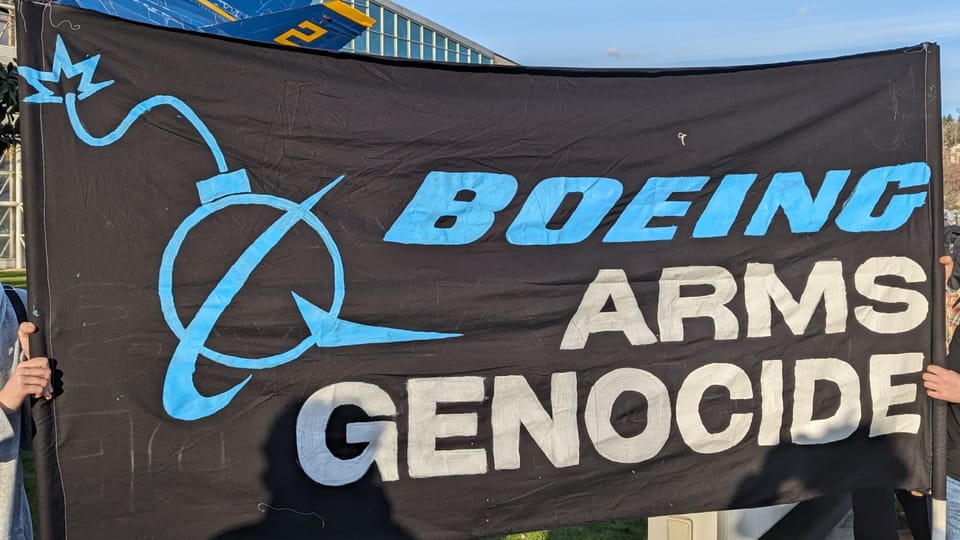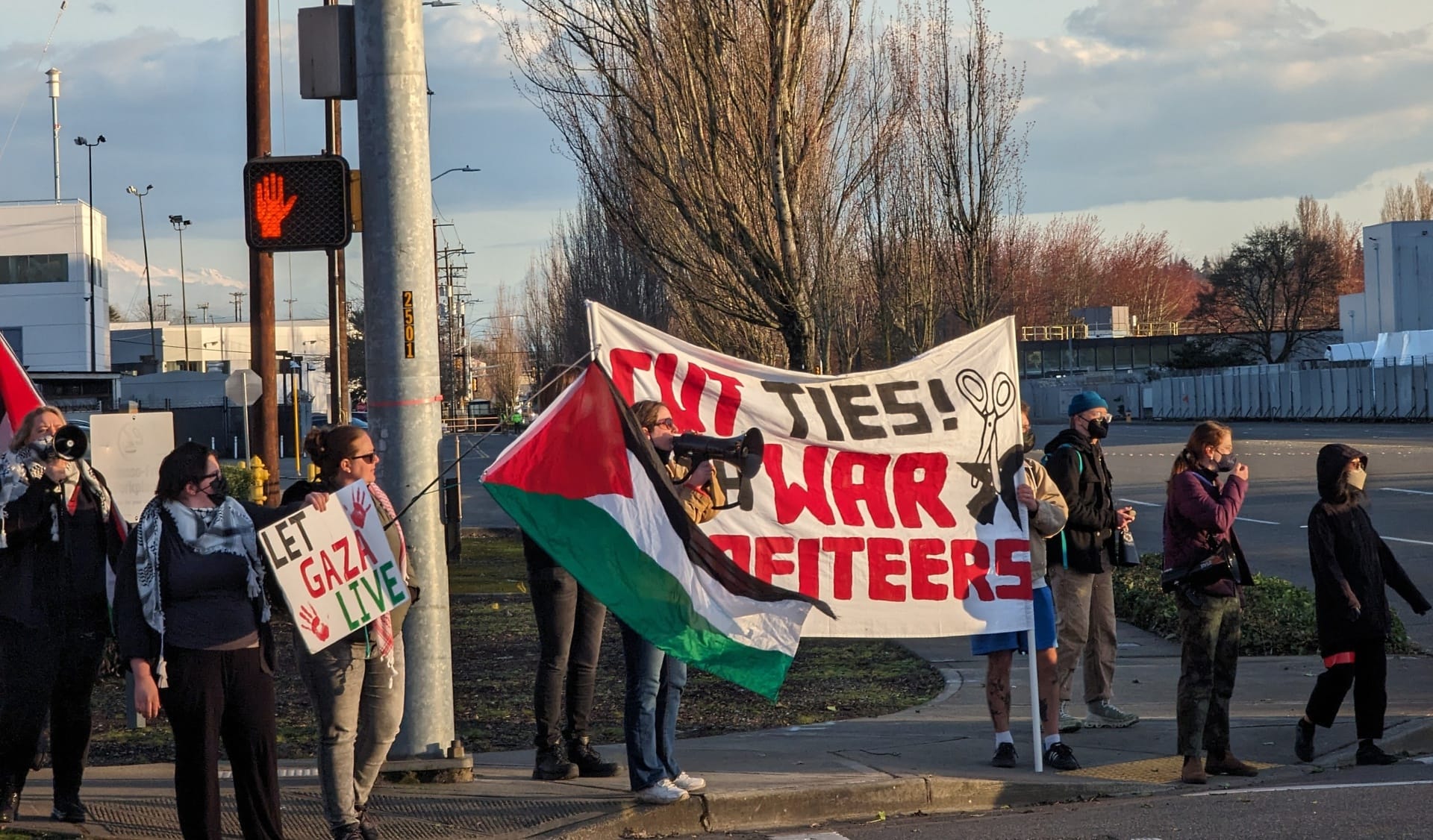Seattle activists disrupt Boeing defense trade show

Boeing has had a rough couple of months. Since the infamous January 5 Alaska Airlines flight 1282, in which part of a 737 Max 9 plane fell off mid-flight, the company has fallen under increasing scrutiny over its deteriorating safety record. Consumers and members of the media have pointed to outsourcing and neoliberal management strategies that prioritize profit as a potential cause of the decline in safety standards.
For many activists, this only adds to a longstanding grievance against Boeing: That it is the world’s third biggest military contractor as of 2022, accused of aiding war crimes in Gaza and elsewhere.
Boeing’s historic status as the dominant economic force in Seattle for decades has turned it into a site for many struggles for justice, from labor organizing to racial integration. Indeed, student activists demonstrated outside the company’s headquarters in 1970 to protest the U.S. bombing of Cambodia using B-52 planes.
In recent years, anti-imperialist groups have escalated their activism against Boeing’s military contracting. In 2019, progressive Filipino diaspora organizations launched the “Who Is Boeing Bombing” campaign to draw attention to how drones manufactured in southern Washington were being deployed against communist guerillas in the Philippines. In the fall of 2021, the Seattle-Tacoma chapter of the International League of Peoples Struggle started the investigative project “Imperialist Watch,” which researched weapons manufacturers like Boeing and their ties to Seattle’s economy. The project later evolved into a fully fledged group called Resist U.S.-Led War.
Israel’s invasion and genocide against Palestinians in Gaza has brought renewed attention to Boeing. A December 2023 Amnesty International report found that Boeing-manufactured munitions used by the Israeli military have been used to target homes, killing dozens of civilians.
Most recently, University Washington Seattle students at the liberated zone encampment have made divesting from Boeing a central demand. The company has donated tens of millions of dollars to the university and offers internships and other career opportunities to many UW students. In February, UW president Ana Mari Cauce explicitly rejected the idea of severing ties with Boeing.
In this post, I want to highlight the protests at the Aerospace and Defense Supplier Summit (ADSS) that happened this past March. The biennial trade show allows companies to show off their products and network with other industry professionals. It is headlined by Boeing, which has a day exclusively devoted to its own presentations.
On March 12, nearly a thousand people marched from Freeway Park to the Seattle Convention Center, where the protest was held. The mobilization was led by Resist and co-signed by about 50 other progressive, environmental and anti-imperialist organizations.
In response to the protest, ADSS staff decided to shift the “Boeing Day” of the summit online to avoid disruptions. Activists hailed this as a significant win, saying that any discomfort caused to summit attendees would make it less likely for them to participate in the future. The following evening, about 100 activists picketed outside the Museum of Flight, where ADSS was holding a cocktail party.

Daniel, a member of Resist who preferred to go by his first name only, explained that these actions were meant to highlight Boeing’s role as a defense contractor and not just a commercial jet manufacturer.
“We see Boeing as a war profiteer — a company that derives its profits directly from war,” Daniel said.
According to Boeing’s Q1 2024 earnings report, the company made almost $7 billion from defense and security products alone, an increase of 6.3% over 2023 its revenues.
Daniel explained that the companies participating in the ADSS are mainly contractors that supply Boeing with various components that are then assembled at the company’s facilities. He added that these complicated supply chains are part of the reason why quality control has declined so much with Boeing’s new commercial jets.
“The Boeing supply chain is really a vastly complex and extensive network of a lot of different companies that produce different components for these war machines,” Daniel said. “So you’ll have a company that is extracting the rubber in order to make tires for military grade planes; you’ll have a company that specializes in producing tiny valves. All these different companies need to be linked together in order to have the pieces come together and produce the final product. At the end of the line Boeing is there, manufacturing and assembling these pieces.”
Boeing did not respond to a request for comment on the anti-ADSS protests.
For groups like Resist, the work of challenging Boeing and its participation in the U.S. military-industrial complex is a long and sustained struggle. Daniel hoped protests like the ones that disrupted the ADSS can help raise awareness about the need to divest from war.
“We would love to see a world in which jbs here in the U.S. and around the world are not dependent on U.S-led militarism and are not dependent on genocide.”

Member discussion